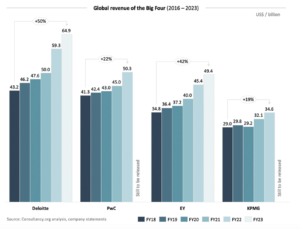Beijing rethinks its foreign policy towards Moscow as Putin’s downfall looms: experts
As mistrust towards Putin grows, Beijing looks for new allies and opportunities for growth
According to recent reports from the Financial Times, Beijing is planning to reorient its foreign policy away from Moscow due to fears of a decline in Russia’s economic and political clout as a result of its invasion of Ukraine. These fears are further compounded by the assumption that Putin’s eventual downfall is imminent.
These reports indicate that mistrust towards Putin is growing among the upper echelons of the Chinese Communist Party. An anonymous Chinese official was quoted by the FT as saying, “The invasion decision was made by a very small group of people. China shouldn’t simply follow Russia,” “Putin is crazy.” This is a stark contrast to the relationship between the two countries just a few years ago, when the two nations’ leaders pledged to strengthen bilateral ties.
China and Russia have historically had a complex relationship, marked by periods of cooperation and competition. In recent years, the two countries have moved closer together, driven in part by their shared concerns about the United States’ global dominance. Both nations have emphasized the need to counterbalance US power and promote a multipolar world order.
China reportedly was not aware of the Kremlin’s plan to launch a full-scale military invasion of Ukraine last year and expected a limited military operation at most, leaving it unprepared for the invasion and resulted in the demotion of China’s then-vice-minister of foreign affairs and top Russia expert Le Yucheng, according to the FT.
During a meeting on Feb. 4, 2022, Putin reportedly informed Xi that Russia “would not rule out taking whatever measures possible if eastern Ukrainian attack Russian territory and cause humanitarian disasters.” This statement further strained the relationship between the two countries. Anonymous Chinese officials told the outlet they believed the Kremlin’s goals in Ukraine were doomed to failure and that Russia would emerge from the conflict as a “minor power.”
Despite this, Beijing still has much to gain from its relationship with the Kremlin in the short term. Anonymous sources told the FT that Beijing sees its closeness to Putin as a useful bargaining chip in its relationship with Europe. Additionally, China is also hoping to profit from the post-war reconstruction boom in Ukraine.
There have been several key developments in the China-Russia relationship in recent years. In 2001, the two countries signed a Treaty of Good-Neighborliness and Friendly Cooperation, which pledged to strengthen political, economic, and security ties. In 2014, Russia and China signed a $400 billion gas deal, which was seen as a significant step in the strengthening of their economic relationship. In 2019 both countries agreed in the creation of a digital Silk Road, a project that aims to create a digital economy partnership between them and other countries.
The two countries have also cooperated on security issues, with Russia providing military equipment and training to China, and the two countries holding joint military exercises. Both China and Russia have also aligned on many issues at the United Nations and other international organizations.
In recent years, Russia has increasingly seen China as a key partner in both economic and international affairs and has been seeking to deepen its ties with Beijing. However, China has been more cautious and has sought to balance its relationship with Russia, to avoid becoming too dependent on Moscow.
It remains to be seen how the relationship between Russia and China will evolve in the coming years, but it’s clear that recent events have caused a shift in the dynamics of the relationship, with Beijing potentially looking for new allies and partnerships.




